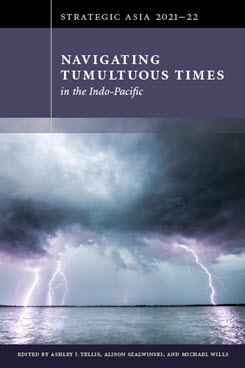Northeast Asia: Alignment Despite Anxiety
This chapter examines the impact of anti-globalization populism and the Covid-19 pandemic on the resilience and strategic trajectories of Japan, South Korea, and Taiwan.
EXECUTIVE SUMMARY
MAIN ARGUMENT
The rise of Chinese power and Beijing’s increasing use of coercion against neighboring states have driven closer alignment by Japan and Taiwan with the U.S. and each other, while South Korea maintains strong security ties with the U.S. to deter North Korea. The election of Donald Trump shook Northeast Asian allies much less than it did U.S. allies in Europe, in part because the U.S. national security establishment generally protected those strategic relationships as U.S. competition with China intensified. Nevertheless, the Trump administration’s retreat from the Trans-Pacific Partnership undermined U.S. leadership in the region and left a gap in economic statecraft that the Biden administration so far has chosen not to fill. The Covid-19 pandemic damaged the political standing of leaders in Japan, South Korea, and Taiwan—permanently in the case of Japan—but it did not fundamentally change geopolitical and geoeconomic trends. The precipitous and poorly planned U.S. exit from Afghanistan was perhaps a greater shock to those alliances.
POLICY IMPLICATIONS
- The U.S. approach to issues such as trade, export controls, and democracy promotion remains too unilateral and too transatlantic, despite more careful legal and international framing of the policies under President Biden.
- U.S. allies in Northeast Asia must do more to close the crisis-management and capability gaps in their national security systems and deterrence postures.
- Close coordination among U.S. allies must be at the center of any new international approach to managing future pandemics.
- After the pandemic weakened political leadership, limited diplomatic flexibility, and made personal diplomacy in the region more difficult, the new leaders of Japan and South Korea will need to begin rebuilding mutual trust.
Michael J. Green is Director of Asian Studies and Chair in Modern and Contemporary Japanese Politics and Foreign Policy at the School of Foreign Service at Georgetown University and Senior Vice President for Asia and Japan Chair at the Center for Strategic and International Studies.



